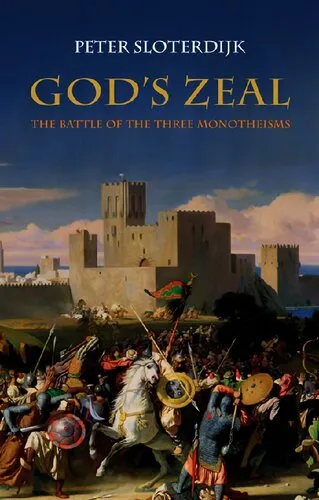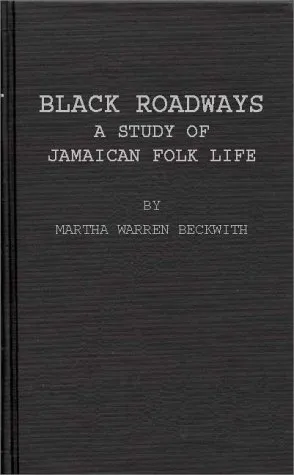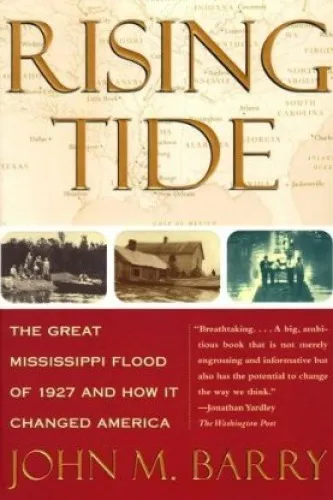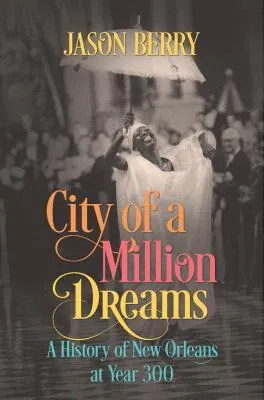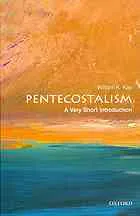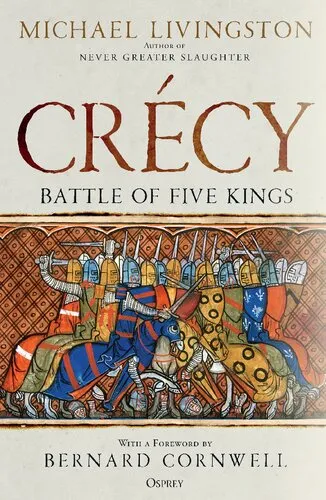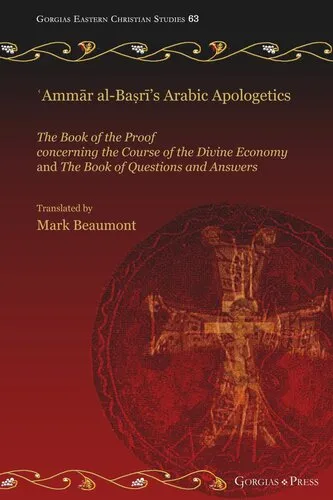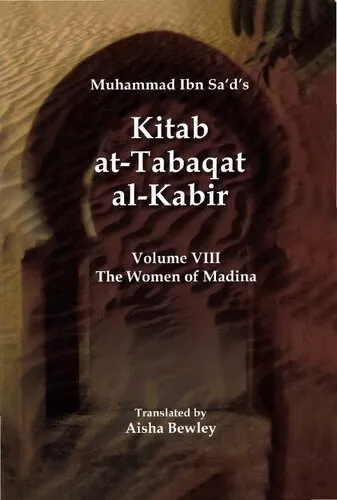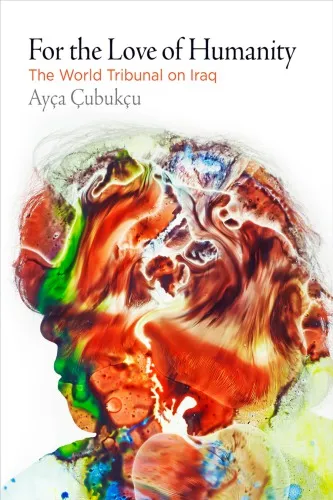God's Zeal: The Battle of the Three Monotheisms
4.2
بر اساس نظر کاربران

شما میتونید سوالاتتون در باره کتاب رو از هوش مصنوعیش بعد از ورود بپرسید
هر دانلود یا پرسش از هوش مصنوعی 2 امتیاز لازم دارد، برای بدست آوردن امتیاز رایگان، به صفحه ی راهنمای امتیازات سر بزنید و یک سری کار ارزشمند انجام بدینکتاب های مرتبط:
معرفی کتاب "God's Zeal: The Battle of the Three Monotheisms"
کتاب "God's Zeal: The Battle of the Three Monotheisms" نوشته پیتر اسلوتردیک، اثری عمیق و فلسفی درباره درگیریها و پیچیدگیهای تاریخی، فرهنگی و الهیاتی سه دین بزرگ توحیدی یعنی یهودیت، مسیحیت و اسلام است. این کتاب با نگاهی انتقادی و با بهرهگیری از تفکر فلسفی مدرن، به بررسی ریشههای تنشها و روابط پیچیده این سه دین میپردازد.
خلاصهای از کتاب
این اثر مهم فلسفی شرحی جامع از نحوه شکلگیری دشمنیها، روابط و رقابتهای درون خانواده ادیان توحیدی ارائه میکند. اسلوتردیک در این کتاب از نگاه تاریخی و جامعهشناسی آغاز میکند و به ماهیت تحولگرایانه این سه دین میپردازد. او به ویژه روی خصوصیتهای زئالوتیسم (Zealotism) یا همان تعصب مذهبی تمرکز میکند و نشان میدهد که چگونه این عامل باعث بقای دین و در عین حال منبع تنشهای مختلف شده است.
نویسنده با تحلیل فلسفی ماهیت ادیان توحیدی، نگاه انتقادی به جهانبینیهای مدرن و پیشامدرن ادیان دارد. او به ماهیت دینی، الهیات سیاسی و همچنین استفاده از ایدئولوژی برای پیشبرد اهداف سیاسی در طول تاریخ اشاره میکند و به دنبال آن است که نشان دهد چگونه هر سه دین تحت تأثیر زئالوتیسم قرار گرفتهاند.
کلیدواژهها و نکات برجسته
- تحلیل فلسفی و تاریخی از ادیان یهودیت، مسیحیت و اسلام
- نقد سیر تکامل و تعصبات هر سه دین
- تمرکز بر زئالوتیسم و تأثیر آن بر هویت دینی
- بررسی تعامل ادیان در بستر سیاسی و فرهنگی جهان
اسلوتردیک بر این باور است که هر سه دین توحیدی در یک مسیر تکاملی مشترک قرار گرفتهاند که نه تنها باعث بقاء آنها، بلکه منجر به مناقشات بزرگ نیز در طول تاریخ شده است.
نقلقولهای معروف از کتاب
«تعصب مذهبی نه تنها نشانهای از ایمان مطلق است، بلکه ضمانتی برای بقاء مفاهیم دینی در طول تاریخ محسوب میشود.»
«ادیان توحیدی همواره در یک فرآیند پیچیده از رقابت برای حقیقت مطلق، نه تنها جهان را تقسیم که خود را نیز گاه متلاشی کردهاند.»
چرا این کتاب مهم است؟
کتاب "God's Zeal" اثری ضروری برای فهم عمیقتر روابط سه دین توحیدی و تأثیر آنها بر تاریخ جهان است. این اثر برای دانشجویان فلسفه دین، جامعهشناسی مذهبی و همچنین علاقهمندان به تاریخ ادیان اهمیت زیادی دارد. استفاده اسلوتردیک از تحلیلهای پیچیده فلسفی، مخاطب را با تفکری نو درباره دین و الهیات آشنا میکند که در کمتر اثری یافت میشود.
مطالعه این کتاب فرصتی است تا میان درگیریهای مذهبی گذشته و چالشهای معاصر پیوند برقرار کنیم و ساختارهای فکری و ارزشی ادیان را بهتر درک کنیم.
همچنین کتاب برای خوانندگان عمومی که علاقهمند به فهم بهتری از تاریخ، فرهنگ و دین هستند نیز میتواند بسیار روشنگر باشد.
Introduction to God's Zeal: The Battle of the Three Monotheisms
God's Zeal: The Battle of the Three Monotheisms, authored by Peter Sloterdijk, provides an in-depth philosophical examination of the shared origins and historical conflicts within the three major monotheistic religions: Judaism, Christianity, and Islam. This incisive work is not just a critique of theology but also an exploration of the existential forces that shape human history, culture, and politics through the prism of faith. Sloterdijk offers a provocative discussion on how these religions compete with and complement each other while ideologically shaping the civilizations they govern.
With a characteristic blend of sharp critique, historical reflection, and contemporary relevance, Sloterdijk positions himself as a philosopher who dares to confront the complex interplay between faith, zealotry, and global politics. In a world increasingly marked by interreligious tensions and misunderstandings, God's Zeal proves to be an essential read for anyone seeking to understand how monotheistic dogmas influence human behavior and societal order. Let's delve deeper into what makes this book such an intellectually stimulating piece of philosophical literature.
Detailed Summary of the Book
God's Zeal unfolds as a series of philosophical reflections that interrogate the historical trajectories of Judaism, Christianity, and Islam. Sloterdijk begins by tracing the roots of these religious traditions back to a shared concept: the covenantal relationship between God and humanity. This foundational idea, he explains, not only provides the basis for monotheistic belief systems but also creates a competitive dynamic rooted in claims of divine truth and mission.
Central to Sloterdijk's analysis is the notion of "zeal," a fervent dedication to a cause that he interprets as both the driving force and the danger of monotheistic faiths. While zeal has empowered these religions to inspire followers and build civilizations, it has also led to crusades, conquests, and modern ideological conflicts. He addresses how the exclusivity proclaimed by each faith fosters both identity and discord, perpetuating struggles for theological and political primacy.
The book is as much about philosophical anthropology as it is about religion. Sloterdijk delves into the psychological dimensions of faith, examining how human beings are drawn to narratives of divine selection and moral absolutes. In doing so, he challenges readers to question how these narratives are used to justify cultural hegemony and territorial expansion.
While the book does not necessarily offer solutions to interreligious conflicts, it sheds new light on why these conflicts persist and how deeply religion is intertwined with human identity and global geopolitics.
Key Takeaways
- The three major monotheisms are united by their shared origins but divided by their unique interpretations and ambitions.
- Religious zeal, while a source of inspiration, can manifest as dangerous fanaticism leading to social and political conflicts.
- Interfaith rivalry is not merely theological but deeply anthropological, reflecting human tendencies toward group identity and exclusion.
- Understanding the philosophical roots of monotheistic struggles can provide insights into contemporary global tensions.
- Sloterdijk calls for rethinking the narratives of divine selection in light of their historical and cultural implications.
Famous Quotes from the Book
"Zeal has always been the double-edged sword of monotheism—it inspires the faithful and isolates the others."
"History is not just the story of kings and empires, but of theological visions that attempt to govern the minds of civilizations."
"To believe in one God is to strive for unity; to fight for one God is to perpetuate division."
Why This Book Matters
Sloterdijk's God's Zeal is an urgent, thought-provoking work that addresses some of the most pressing issues of our time—religious intolerance, interfaith conflicts, and the cultural implications of monotheistic ideologies. In a world increasingly polarized by ideological divides, this book helps us understand the historical genesis of these divisions, offering readers a philosophical lens through which to assess their impact on modern societies.
What makes this book particularly important is its refusal to take sides. Sloterdijk neither endorses nor condemns any particular faith but instead critiques the structural and existential features of monotheism itself. This impartial yet critical approach makes God's Zeal an invaluable resource for scholars, theologians, students of philosophy, and anyone interested in the intersection of religion and culture.
At its core, this book matters because it does more than just analyze; it challenges us to reflect on how ideas of the divine continue to shape human behavior and society in profound, often troubling, ways. For readers seeking deeper insight into the dynamics of belief and zeal, Sloterdijk offers a bold, unflinching narrative that is as relevant today as ever.
دانلود رایگان مستقیم
شما میتونید سوالاتتون در باره کتاب رو از هوش مصنوعیش بعد از ورود بپرسید
دسترسی به کتابها از طریق پلتفرمهای قانونی و کتابخانههای عمومی نه تنها از حقوق نویسندگان و ناشران حمایت میکند، بلکه به پایداری فرهنگ کتابخوانی نیز کمک میرساند. پیش از دانلود، لحظهای به بررسی این گزینهها فکر کنید.
این کتاب رو در پلتفرم های دیگه ببینید
WorldCat به شما کمک میکنه تا کتاب ها رو در کتابخانه های سراسر دنیا پیدا کنید
امتیازها، نظرات تخصصی و صحبت ها درباره کتاب را در Goodreads ببینید
کتابهای کمیاب یا دست دوم را در AbeBooks پیدا کنید و بخرید
1355
بازدید4.2
امتیاز0
نظر98%
رضایتنظرات:
4.2
بر اساس 0 نظر کاربران
Questions & Answers
Ask questions about this book or help others by answering
No questions yet. Be the first to ask!
